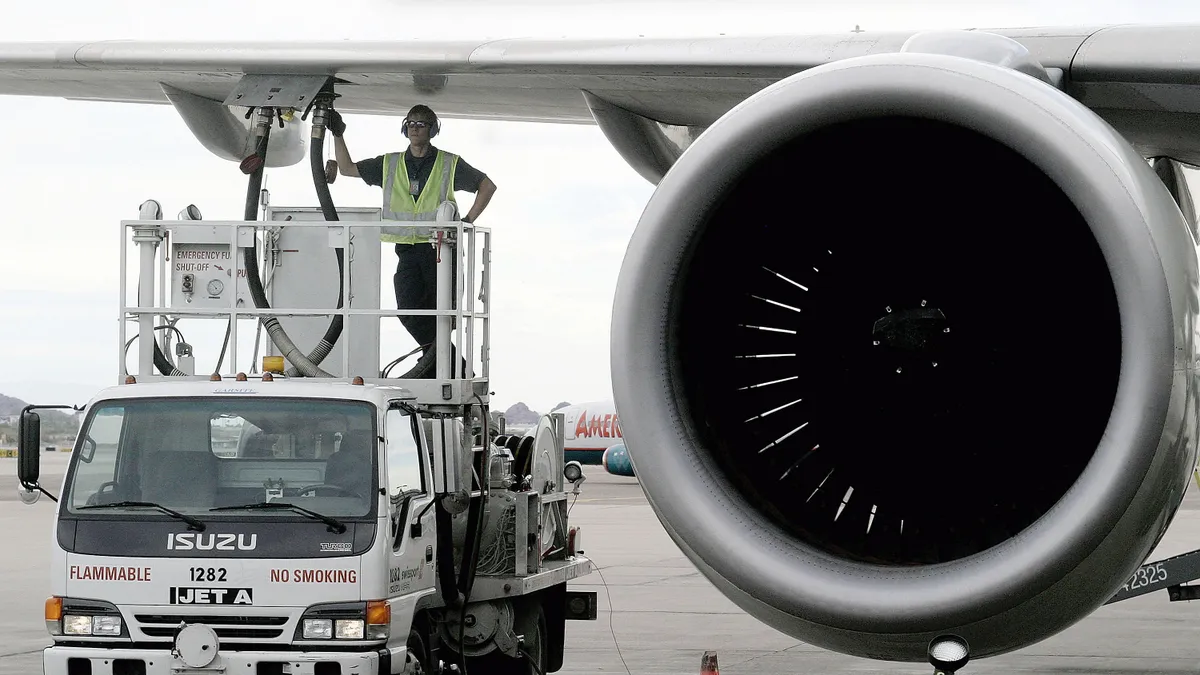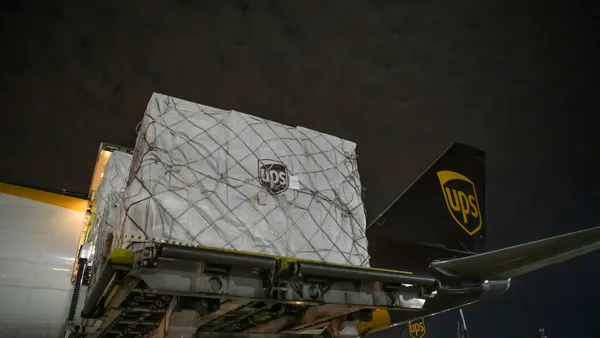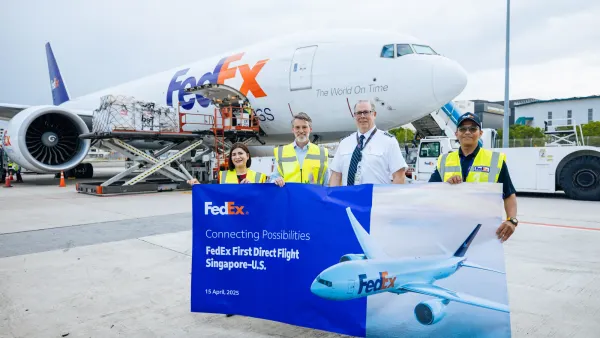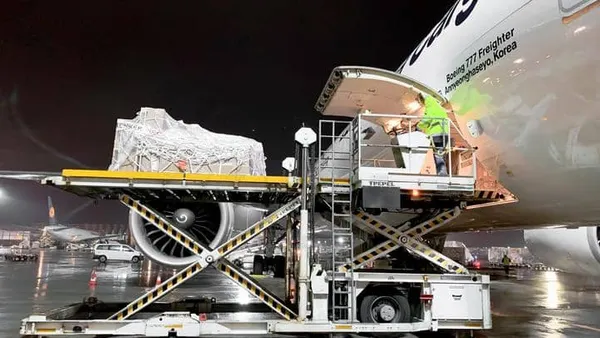Dive Brief:
- Supply chain issues in Q1 led brands including Levi Strauss, Lands' End and PVH to increase their reliance on expedited freight to ensure products are in stock, according to recent earnings calls.
- "We have had to increase our airfreight," said Levi Strauss' Executive Vice President and CFO Harmit Singh. Lands' End President and CFO James Gooch struck a similar tone. "We are certainly seeing challenges like everybody else," Gooch said, adding that expediting shipments was "adding a little bit of cost."
- PVH, which operates brands including Tommy Hilfiger and Calvin Klein, incorporated added airfreight costs into its 2021 outlook for investors. The outlook anticipates inventory delays may last between four to six weeks and will result in a need to expedite goods to "maintain our sales plan in the second half of the year," according to Mike Shaffer, executive vice president, CFO and COO at PVH.
Dive Insight:
Inventory delays have been systemic in the first half of 2021, as companies struggle to catch up to quickly rising demand.
PVH saw its factories for knits in India close as lockdowns were put in place to mitigate rising COVID-19 infection rates. In Sri Lanka, where PVH produces underwear, the factories were open but not operating at full capacity, which delayed production.
In cases like these, where factory closures are expected to last only weeks, PVH said counting on expedited freight services, or even "faster ships," was a suitable way to plan for the supply chain disruptions.
"Underwear is particularly one where we can get goods in quicker and the cost is not great," Shaffer said. "The goods are smaller in scale in terms of size, and we can put quite a few into a path. So, each order is looked at individually."
Whether it is semiconductors, jeans, masks or vaccines, many of the products in high demand at the moment can be shipped by air in the case of a disruption.
For many shippers, though, bringing in goods by airfreight can significantly increase expenses. Peloton spent $100 million to speed shipping, including the use of airfreight and expedited ocean shipping.
The logistical flexibility airfreight provides has been a lifeline and a boon for air cargo providers reeling from the pandemic.
"Air freight has been in nonstop peak-season mode despite pandemic-induced capacity decline, while other disruptions, such as the Suez Canal blockage, drove even more demand to air," Matt Castle, a vice president of air freight products and services for C.H. Robinson, wrote in a company blog in April.
Typically, airfreight would benefit almost unilaterally from global disruptions as the quickest way to transport products. But as passenger travel subsided at the start of the pandemic, airlines canceled flights and routes that also carried cargo, leading to the "induced capacity decline" alluded to by Castle.
This dynamic is part of why Shaffer told investors "faster ships" were an option for PVH, too. "We have found air freight constrained. There were not a lot of flights, but we are looking on certain product categories," like underwear, Shaffer said.
Demand is not growing in a vacuum, though. In places like the U.S. and China, it's happening as pandemic-related restrictions begin to ease and consumer confidence grows, which has led to reopenings of retail stores and a growth in passenger travel. In other words, the places where products are needed and the number of flights available to ship cargo on is starting to grow.
"As restrictions have been lifted, more passenger planes are moving cargo in addition to the industry's move to retrofit planes for cargo-only freighters," said Edward Ryan, CEO at Descartes Systems Group. "Also, with physical stores now reopening, we are seeing warehouse and store replenishment as a legitimate factor in increasing shipment volumes."
For retailers and air carriers, this presents an opportunity to "offset" higher freight costs with higher sales, as well as a challenge, as they evaluate where these trends are happening and for how long they will last.
Levi Strauss President and CEO Chip Bergh commented on this dynamic, when asked during the company's latest earning call how it's planning for demand.
"It's the biggest challenge we're all facing," Bergh said. "Is what we're seeing here recently sustainable for the next six or 12 months, or is it a pop in the arm, and it goes back to something that looks more like the immediate pre-pandemic period?"
Correction: A previous version of this article misattributed a quote. The quote is from Edward Ryan, CEO of Descartes.














